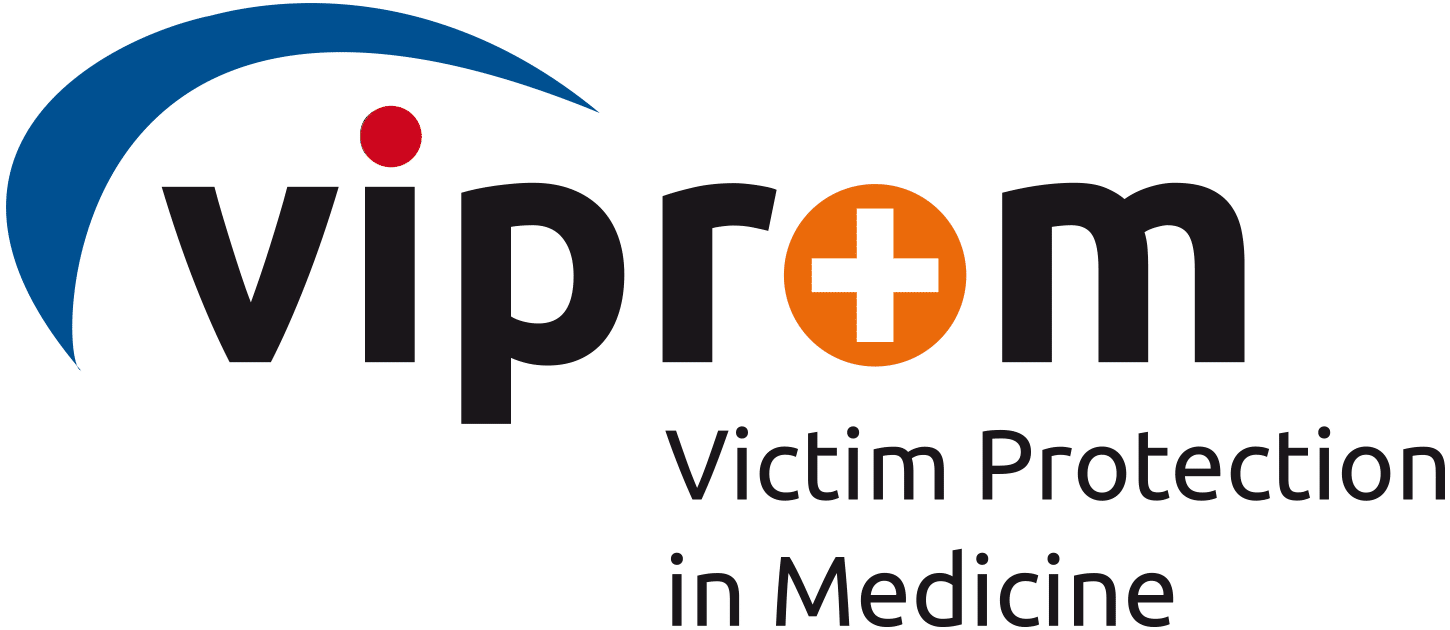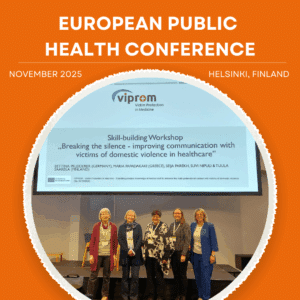On 13 November 2025, VIPROM hosted a highly interactive skill-building workshop titled “Breaking the silence – improving communication with victims of domestic violence in healthcare” at the European Public Health Conference in Helsinki, Finland. The session brought together professionals from across Europe and highlighted the crucial role of healthcare providers in identifying and responding to domestic violence.
The workshop opened with a brief introduction to the VIPROM project, presented by VIPROM´s coordinator Bettina Pfleiderer (Germany), followed by an input from Maria Papadakaki (Greece), who framed domestic violence as a pressing public health challenge and emphasised the opportunities for improvement within healthcare systems.
The core of the workshop focused on training communication skills, based on VIPROM’s training Module 3 on communication. After an overview of communication principles, participants engaged in a dynamic, interactive case-based session facilitated by Seija Parekh, Suvi Nipuli and Tuula Saarela (Finland). Through live role plays, participants practiced how to sensitively approach the topic of domestic violence, recognise verbal and non-verbal cues, and respond in a manner that fosters trust, safety and empowerment.
The role plays illustrated realistic challenges – such as patient hesitation, fear, or shame – and gave participants the opportunity to explore effective strategies for screening and supportive communication.
The session concluded with a reflection on trust-building, barriers to disclosure, and how these techniques can be integrated into daily clinical practice. Participants shared their own experiences and discussed ways to strengthen professional responses to domestic violence in diverse healthcare settings.
The workshop demonstrated that practical, experience-based training is essential for enabling healthcare professionals to better support victims of domestic violence. VIPROM will continue to develop evidence-based tools and training materials to enhance professional competence and to promote safer pathways for victims within the healthcare system.

